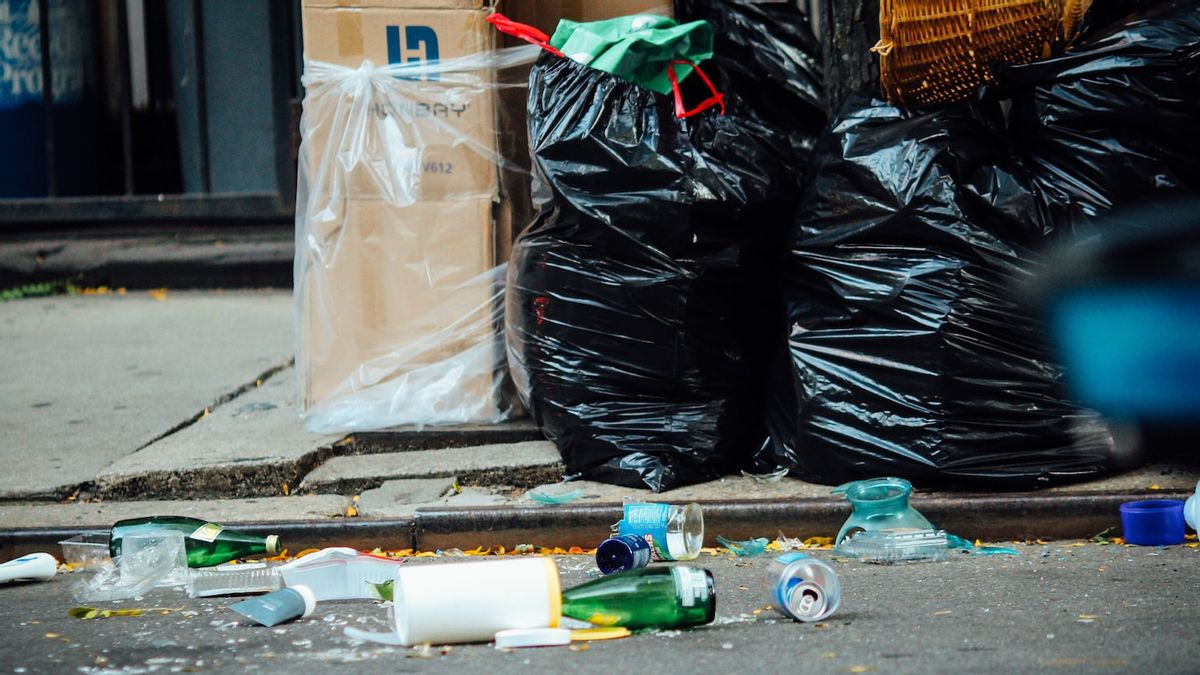JAKARTA - The Ministry of Environment and Forestry encourages increased community welfare through waste management completion activities. Starting from settlements to final disposal sites.
Director General of Waste Management, Waste, and B3 of the Ministry of Environment and Forestry Rosa Vivien Ratnawati said that Indonesians are still not used to sorting waste. The government must work hard so that garbage that has not been sorted can still be used to boost the welfare of the community.
"When I was little, (log: red) don't litter and throw garbage in the trash, it feels ancient. The thing now is, let's sort the garbage and process it because garbage can be something economically useful," said Rosa Vivien Ratnawati during a press conference at the Manggala Wanabakti Building in Jakarta, Wednesday, February 1, quoted by Antara.
In several major cities such as Bali and Jakarta, waste sorting activities are only carried out by scavengers when the garbage arrives at the final disposal site or TPA. scavengers usually take garbage that still has economic value.
Meanwhile, those who do not, the waste must be processed again to be used as a referenced derivative fuel (RDF) or badminton for coal replacement waste.
RDF is used for the co-firing program of 10 percent of coal at steam power plants or PLTU, cement factories, and large companies that have vapor valves.
"Popok and multilayers of plastic sachet packaging can also be processed into briquettes or into bricks, some are used to fuel. That's what we are now developing for the welfare of the community," said Vivien.
"So, basically garbage is not something that is thrown away but how (sand: red) it can have economic value," he added.
By 2030, Indonesia is targeting a reduction in greenhouse gas emissions levels from the waste sector by 40 metric tons equivalent to carbon dioxide through its own efforts and 43.5 metric tons through international cooperation support.
The Ministry of Environment and Forestry has drawn up an action plan to achieve zero waste and zero emissions from the sub-sector of solid waste or waste as part of efforts to achieve the target of reducing emissions.
The Ministry of Environment and Forestry seeks to improve the management of all TPAs to implement controllable management methods or sanitary landfills through the utilization of methane gas by 2025.
Then, the Ministry of Environment and Forestry targets that there will be no more construction of a new TPA starting in 2030 with the use of existing TPA to be continued until the operational period is complete and mining for waste has begun and there will be no illegal burning starting in 2031.
In addition, the government also optimizes waste processing facilities such as PLTSa, RDF, SRF, biodigesters and magots for biomass waste; TPA operations are designated specifically as waste disposal sites in 2050; and strengthening waste sorting activities in sources and utilizing waste as raw materials for recycling.
The English, Chinese, Japanese, Arabic, and French versions are automatically generated by the AI. So there may still be inaccuracies in translating, please always see Indonesian as our main language. (system supported by DigitalSiber.id)








